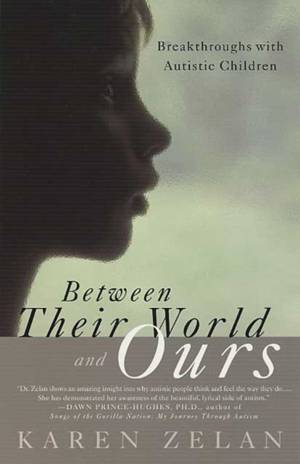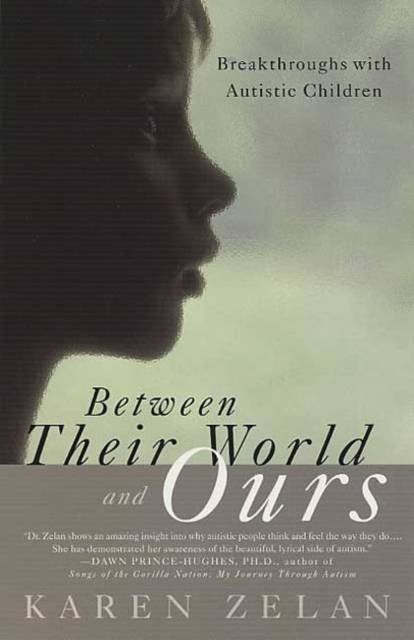
- Retrait gratuit dans votre magasin Club
- 7.000.000 titres dans notre catalogue
- Payer en toute sécurité
- Toujours un magasin près de chez vous
- Retrait gratuit dans votre magasin Club
- 7.000.0000 titres dans notre catalogue
- Payer en toute sécurité
- Toujours un magasin près de chez vous
Between Their World and Ours
Breakthroughs with Autistic Children
Karen ZelanDescription
Autism has reached epidemic proportions. The latest studies suggest that as many as one in 150 children ages ten and younger may be affected by autism---a total of 300,000 children in the United States alone. Adults included, there are more than a million people in the United States suffering from autistic disorders. Since autism has had a bleak prognosis, and since the isolation of autistic children is so painful to parents, Karen Zelan's accounts of her breakthroughs with autistic children in Between Their World and Ours present a particularly hopeful perspective. Zelan illustrates how diagnostic labels reflect the preconceptions and prejudices of the diagnostician, but reveal nothing about the unique person who carries the label and his potential as a human being.
Describing nine of the forty-five autists with whom she has worked, Zelan documents how psychotherapy with autistic youth helps them to overcome their problems in communicating, playing, feeling, thinking, and interacting with people more companionably. Her riveting narratives, showing her growing understanding of her young patients, capture how it is to be autistic. She describes the ways these young people meet the challenges of being the way the are. Her work demonstrates how the social context in which autistic children find themselves can make a significant difference in their development, their self-esteem, and their ability to think through problems in living. Zelan, a gifted and intuitive psychotherapist, shows how the autist's sense of self emerges during childhood. She details how these autistic children's first friendships originate, the pitfalls and pleasures they experience in relating to their peers, their dreams, and their fears of social contact. These real-life stories reveal what worked with autistic children and why. Zelan offers prescriptive suggestions for parents and teachers based on her discoveries, demonstrating humane ways of dealing with the often troubling problems of autism and of closing the gap between their world and ours.Spécifications
Parties prenantes
- Auteur(s) :
- Editeur:
Contenu
- Nombre de pages :
- 418
- Langue:
- Anglais
Caractéristiques
- EAN:
- 9780312313760
- Date de parution :
- 01-08-04
- Format:
- Livre broché
- Format numérique:
- Trade paperback (VS)
- Dimensions :
- 143 mm x 228 mm
- Poids :
- 576 g

Les avis
Nous publions uniquement les avis qui respectent les conditions requises. Consultez nos conditions pour les avis.






